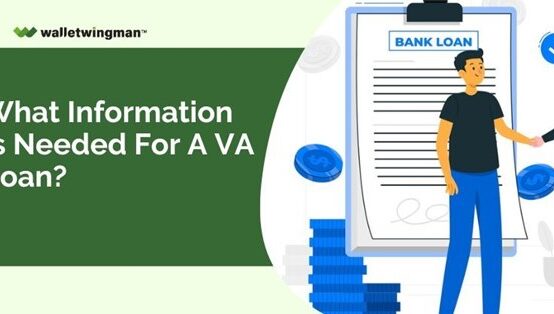The VA loan program stands out for its exclusive benefits tailored to military members and veterans who have served our nation. VA loans meet specific eligibility criteria outlined in VA loan requirements by offering the unique advantage of purchasing a home with no down payment or mortgage insurance.
Understanding how VA loans operate is paramount for individuals contemplating this financing option. By providing accessible homeownership opportunities and streamlined processes, VA loans empower service members and veterans to achieve their housing goals while honoring their dedication to serving the country.
VA Loan Contingencies: What are They and How do They Work?

Among all the VA programs, VA Loans provide some of the most tangible and meaningful benefits designed explicitly for the military members and veterans who have sacrificed their lives for our country. VA loans are a rare type of mortgage that can be acquired with no down payment or mortgage insurance–making home buying accessible to many who otherwise never have the opportunity.
Candidates must meet specific eligibility requirements defined in VA loan regulations to qualify for these loans. A deep understanding of this kind of financing can help those eligible parties to utilize this tool to the fullest.
Real Estate Contract Contingencies Explained
In a real estate and home buying context, a “contingency” is a condition that must be met for a proposed deal to proceed. When you add contingencies to your purchase offer, you make the offer contingent upon those conditions.
These can be seen as an exit strategy that applies to real estate transactions. When a home buyer using a VA loan attaches contingencies to the offer, it gives them a way to back out of the deal if certain scenarios or events occur.
More importantly, VA loan contingencies can protect the buyer’s earnest money deposit so they don’t lost it if a deal doesn’t go through. If written correctly, VA loan contingencies allow the buyer to recover the deposit money.
All home buyers can include contingencies within their purchase offers and contracts. This applies to those using conventional, FHA, and VA mortgage financing. In the case of VA loans, real estate contract contingencies give the borrower/home buyer an added layer of protection.
So what are some possible VA loan contingencies that could be used when drawing up VA loan contracts?

VA Loan Contingencies
To be clear, you’re not required to use contract contingencies when buying a house. And there might be scenarios where you’re better off not using them at all. Understanding contingencies and how they can be used can help you to be more prepared when it comes time to use your VA loan.
VA Loan Appraisal Contingency
The home appraisal contingency is an ultra-important safety measure for VA loan borrowers because it guarantees that the experts must value and appraise the property fairly. This contingency shields buyers from overpaying for a home.
VA loan buyers have several options if the appraisal comes in lower than the purchase price. They may negotiate with the seller to adjust the price to match the appraised value, helping to protect their financial investment.
Alternatively, they may not agree to the contract but instead, retain the right to get a full refund of the earnest deposit money. Through the VA loan appraisal contingency clause, VA loans ensure transparency and sound financial footing for active-duty soldiers and veterans during the home-buying journey.
VA Loan Inspection Inspection Contingencies
VA loan buyers can perform a comprehensive check of the property using their home Inspection contingency option. This guarantees a property undergoing a verified condition assessment by a qualified inspector is free from major defects that weren’t disclosed in a property condition report.
This involves finding any significant repairs or problems that are not seen during walk-throughs. If serious issues are revealed during the inspection, buyers have the right to protect their ernest money. The buyer can dissolve the deal or negotiate repairs with the seller.
VA Mortgage Contingencies
The VA mortgage contingency is an integral part of a VA loan package as it provides a VA buyer a defined period of time to secure financing. This contingency makes it possible for a buyer to cancel an offer on a home and retain their deposit money if they are unable to secure a loan. Sellers will often require pre-approval before accepting an offer with this kind of contingency attached.
This provision is especially important for VA borrowers because it can offer flexibility while addressing possible financial obstacles–enabling them to plan their way around housing financing confidently. The exit strategy that the VA mortgage contingency provides is an illustration of the VA loan’s commitment to supporting military personnel and veterans in homeownership.
VA Loan Contingency for Sale of Current Home
Home sale contingency is a strategic provision in VA loans, offering flexibility to buyers who must sell their current property before completing the purchase of a new home. This contingency empowers buyers to safeguard their financial interests by providing an exit route from the contract should they face challenges in selling their existing home.
Particularly beneficial for those relying on proceeds from the sale of their home to fund their down payment and closing costs, this contingency ensures favorable timing and protection throughout the home-buying process. By accommodating the complexities of selling and purchasing simultaneously, VA loans prioritize the smooth transition of military personnel and veterans into new homes.
VA Loan Title Contingency
The title contingency within VA loans ensures buyers obtain properties with clear ownership, free from legal disputes that might impede their rights. By placing responsibility on sellers to rectify any title defects, this contingency safeguards buyers’ interests.
If unresolved issues arise, buyers can terminate the contract, preventing potential legal or financial entanglements. In alignment with other VA loan contingencies, such as appraisal and inspection, the title contingency underscores the program’s commitment to shielding military members and veterans from adverse legal or financial ramifications.
Together, these contingencies uphold the integrity and security of the home-buying process for VA loan beneficiaries.
The Importance of Working with a Knowledgeable Real Estate Agent
Navigating the complexities of VA loans and contingencies can be challenging, which is why it’s essential to work with a real estate agent or broker experienced in handling VA loan transactions.
A well-versed agent can guide you through the process, ensure that contingencies are appropriately addressed, and advocate for your best interests.
Addressing Common Misconceptions About VA Loans
Several misconceptions about VA loans may deter potential buyers from considering this financing option. It’s important to dispel these myths and provide accurate information to help individuals make the right decisions.
Here are some common misconceptions about VA loans:
- Misconception: VA loans are only for active-duty service members.
Fact: VA loans are available to eligible veterans, reservists, National Guard members, and surviving spouses.
- Misconception: VA loans take longer to close.
Fact: VA loans can close as quickly as conventional loans, provided all necessary documentation is in order.
- Misconception: VA loans require perfect credit.
Fact: While credit requirements vary by lender, VA loans generally have more flexible credit score requirements compared to conventional loans.
VA Loan Contingencies: How to Include Them in Your Purchase Offer
So, how do you actually include a contingency in your purchase offer when using a VA home loan? The easiest way is by using a standard contingency clause and pasting it right into your offer. Your real-estate agent should be able to help you with this.
But before we get to that, some terminology:
The “purchase offer” is the initial document submitted by the buyer to the seller, outlining the terms and conditions under which the buyer is willing to purchase the property. If the seller accepts the offer, it becomes a binding “contract.”
Contingencies are typically written in the purchase offer, specifying the conditions that must be met for the sale to proceed. Real estate agents often have templates with these clauses that they can tailor for each transaction.
While standardized clauses provide a good starting point, they should be tailored to the specific circumstances of the transaction. For example, the buyer might want to specify the timeframes for inspections or indicate the exact conditions that must be met for financing.
Consider Local Housing Market Conditions First
When using a VA-guaranteed mortgage loan to buy a house, you have the right to include certain contingencies within your offer. But whether or not you should actually use them depends partly on local market conditions.
In a competitive market, sellers may be more likely to accept offers that have fewer contingencies. If there are multiple buyers interested in a home, the seller may choose the offer that is most likely to close quickly and smoothly. Offers with fewer contingencies are generally less risky for sellers.
In a slower market, on the other hand, VA loan contingencies specified by the buyer are less likely to cause a problem. With fewer offers coming in, the seller will probably be more motivated to make a deal and less deterred by the VA loan contingencies you include.


 How to Buy a Condo Unit with a VA Mortgage Loan
How to Buy a Condo Unit with a VA Mortgage Loan  How Credit Scores Affect Mortgage Rates on a VA Loan
How Credit Scores Affect Mortgage Rates on a VA Loan  How Much Can I Borrow When Using a VA Loan to Buy a House?
How Much Can I Borrow When Using a VA Loan to Buy a House?  10 Important Quotes from the Official VA Loan Buyer’s Guide
10 Important Quotes from the Official VA Loan Buyer’s Guide  What Information Is Needed for a VA Loan?
What Information Is Needed for a VA Loan?  How Veterans Can Utilize VA Loans For Investment Property Ventures
How Veterans Can Utilize VA Loans For Investment Property Ventures 